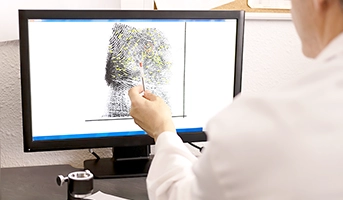Internal medicine, often known as general medicine, is a field of medicine in MBBS that focuses on the treatment, diagnosis, and prevention of a variety of internal illnesses, including neurology, cardiology, and gastrointestinal, among others. Internal medicine courses can be challenging for medical students since they include a wide range of topics and are thus time consuming to learn. It provides a firm basis for your future career as a doctor and may also be rewarding if you understand how to study internal medicine.
Dr. Archith Boloor’s expertise in the subject combined with years of field knowledge provides a comprehensive understanding of this internal medicine course. Further, his study tips- “Persevere Till You Reach Your Goal” for medical students are prized possessions as he himself has won several notable awards and achievements. To help any student looking to learn how to study internal medicine effectively, here are some tips and the best study guide for internal medicine:
- Learn from Ward Rounds – One study advice for medical students studying for their exam is to do rounds throughout the wards on a regular basis. This is a fantastic chance to become familiar with a range of illnesses, symptoms, and treatment plans. The ward’s natural structure, which brings together a range of medical branches in one area, may act as a physical representation of any internal medicine course.
- Explore Reliable Sources – By referencing to online platforms such as DigiNerve along with textbooks makes your concepts even better. With DigiNerve’s online Medicine course, students get to learn Medicine from Dr. Archith Boloor’s lectures. Learning from the author himself strengthens their grasp on topics and avoids discrepancy in the knowledge obtained. Students can effectively study their internal medicine course by combining this information with practicals. They may understand the actual application of a theoretical treatment by comparing multiple sources, resulting in a more holistic internal medicine study guide.
- Use Rotation Time – Most students who are unclear of how to study medicine successfully overlook the time they have during rotations. Students can use flashcards with brief questions and answers, or comprehensive notes, to revise during minor breaks or dull hours, in addition to using the real ward as a means of studying. Saving these little pockets of time for the most difficult material to remember is another study advice for medical students.
- Studying Medical Charts – To assess a student’s knowledge, the internal medicine exam frequently contains questions based on patient files, physical exam results, and ECGs. This is the ideal way for people on rotation who want to learn about internal medicine. Continue to look through genuine patient medical charts to learn not just the framework in which information is presented to doctors, but also prevalent diseases and symptoms.
The above-mentioned medical study tips and the best study guide for internal medicine will undoubtedly boost students’ productivity and increase efficiency. For more information on courses taught by Dr. Archith Boloor.






























